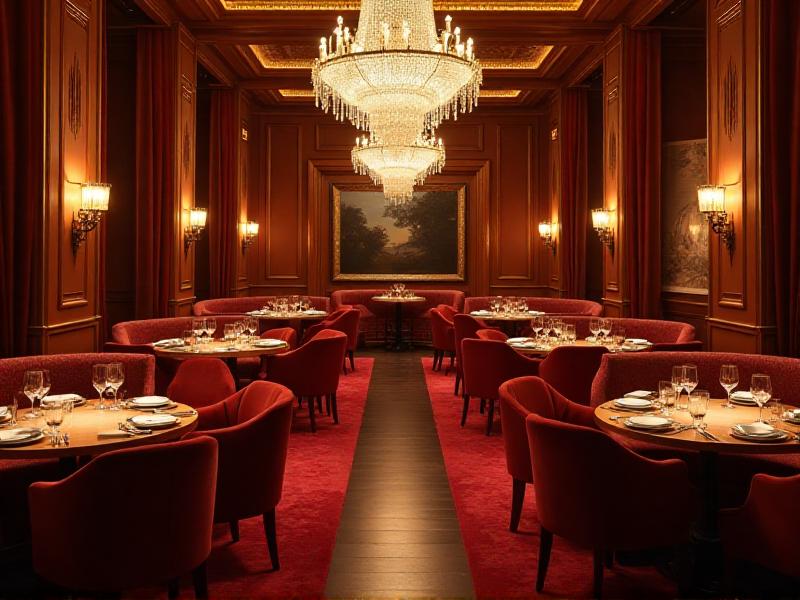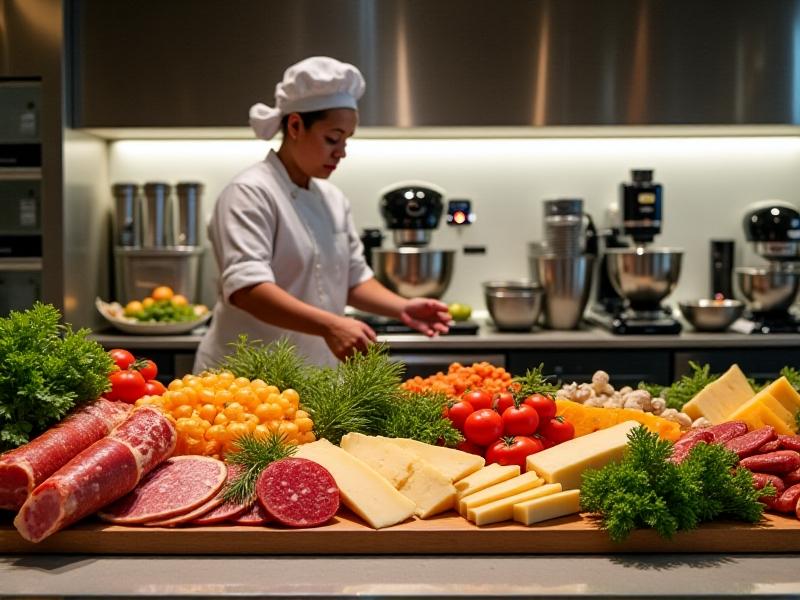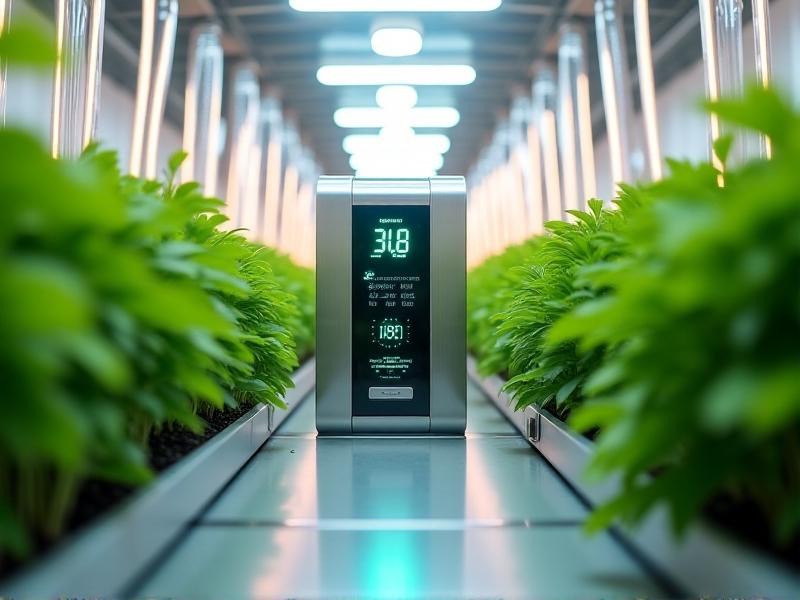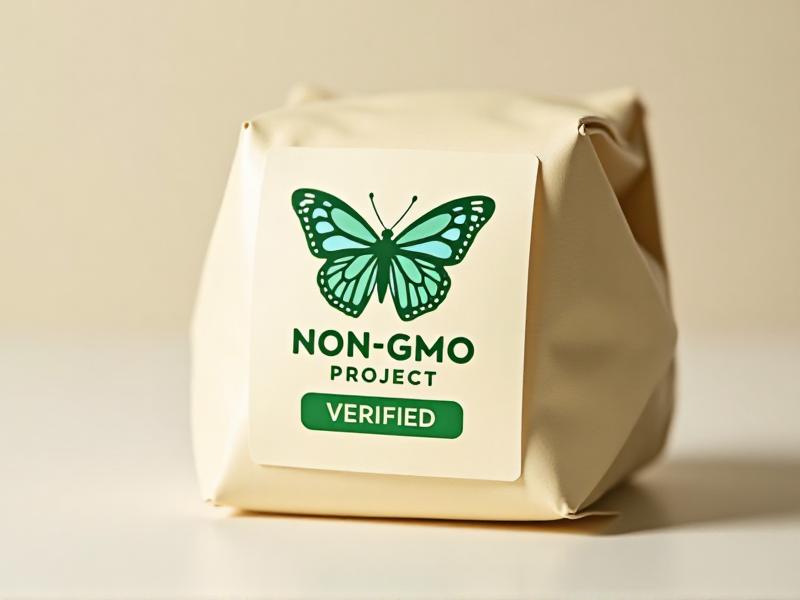B2B Sales to High-End Restaurants
Understanding the High-End Restaurant Market
High-end restaurants are more than just places to eat; they are experiences crafted with precision and care. These establishments cater to a discerning clientele who expect nothing but the best in terms of quality, service, and ambiance. For B2B sales professionals, understanding this market is crucial. High-end restaurants often source their ingredients, equipment, and services from specialized suppliers who can meet their exacting standards. This means that B2B sales to these establishments require a deep understanding of their needs, preferences, and operational challenges.
One of the key aspects of the high-end restaurant market is its focus on exclusivity and uniqueness. These restaurants often pride themselves on offering something that cannot be found elsewhere, whether it's a rare ingredient, a unique cooking technique, or an exceptional dining experience. As a B2B sales professional, your offerings should align with this ethos. Whether you're selling premium ingredients, state-of-the-art kitchen equipment, or specialized services, your products must help these restaurants maintain their competitive edge.
Another important factor to consider is the operational complexity of high-end restaurants. These establishments often have intricate workflows and require seamless coordination between various teams. Your B2B solutions should not only meet their needs but also integrate smoothly into their existing processes. This could mean offering customizable products, providing training and support, or ensuring timely delivery and installation. By understanding the unique challenges and opportunities of the high-end restaurant market, you can position yourself as a trusted partner rather than just another vendor.

Building Relationships with High-End Restaurant Owners
In the world of B2B sales, relationships are everything. This is especially true when dealing with high-end restaurant owners, who often have strong personal connections to their businesses. These owners are not just looking for suppliers; they are looking for partners who understand their vision and can help them bring it to life. Building a strong relationship with a high-end restaurant owner requires more than just a good sales pitch. It requires trust, reliability, and a genuine commitment to their success.
One of the best ways to build a relationship with a high-end restaurant owner is to take the time to understand their business. This means doing your homework before approaching them. Research their restaurant, its menu, its clientele, and its unique selling points. When you approach them, show that you understand what makes their restaurant special and how your product or service can enhance that. This level of preparation demonstrates that you are serious about their business and are not just looking to make a quick sale.
Another important aspect of building relationships is communication. High-end restaurant owners are often busy and have little time for lengthy meetings or sales calls. Be concise, but also be available when they need you. Respond promptly to their inquiries, and follow up regularly to check in on their needs. Over time, this consistent communication will build trust and show that you are a reliable partner. Additionally, don't be afraid to go the extra mile. Whether it's offering a sample of your product, providing a demo, or helping them solve a problem, these small gestures can go a long way in building a strong relationship.

Tailoring Your Offerings to High-End Restaurants
High-end restaurants have unique needs that set them apart from other dining establishments. To succeed in B2B sales to these businesses, it's essential to tailor your offerings to meet their specific requirements. This means not only providing high-quality products but also ensuring that your solutions align with their brand, operational needs, and customer expectations.
One of the first steps in tailoring your offerings is to understand the restaurant's brand identity. High-end restaurants often have a strong brand that reflects their values, aesthetic, and target audience. Your products or services should complement this brand. For example, if a restaurant prides itself on using locally sourced ingredients, you could offer a range of premium, locally produced products. If the restaurant has a modern, minimalist aesthetic, your equipment or packaging should reflect that style. By aligning your offerings with the restaurant's brand, you can position yourself as a natural fit for their business.
Another important consideration is the operational needs of high-end restaurants. These establishments often have complex workflows and require equipment and services that can keep up with their demands. For example, a high-end restaurant may need specialized kitchen equipment that can handle high volumes while maintaining precision and consistency. They may also require services like custom menu design or staff training to ensure that every aspect of the dining experience meets their standards. By offering solutions that address these specific needs, you can demonstrate your understanding of their business and provide real value.
Finally, it's important to consider the expectations of the restaurant's customers. High-end diners expect nothing but the best, and your offerings should help the restaurant meet those expectations. This could mean providing ingredients that are not only of the highest quality but also ethically sourced and sustainably produced. It could also mean offering services that enhance the overall dining experience, such as tableware that complements the restaurant's aesthetic or technology that streamlines the reservation process. By tailoring your offerings to the needs and expectations of high-end restaurants, you can create solutions that truly add value to their business.

Navigating the Sales Process for High-End Restaurants
The sales process for high-end restaurants can be both challenging and rewarding. These establishments often have high standards and specific requirements, which means that the sales process can be more complex than with other types of businesses. However, with the right approach, you can navigate this process successfully and build long-term partnerships with high-end restaurants.
The first step in the sales process is identifying the right decision-makers. In high-end restaurants, the decision-making process often involves multiple stakeholders, including the owner, executive chef, and general manager. It's important to understand who has the authority to make purchasing decisions and tailor your approach accordingly. For example, the executive chef may be more interested in the quality and functionality of your products, while the owner may be more focused on the overall value and impact on the business. By understanding the priorities of each decision-maker, you can tailor your pitch to address their specific concerns.
Once you've identified the decision-makers, the next step is to present your offerings in a way that resonates with them. High-end restaurants are often looking for solutions that can enhance their brand and provide a competitive edge. This means that your presentation should focus on the unique benefits of your products or services and how they align with the restaurant's goals. Use case studies, testimonials, and demonstrations to show how your offerings have helped other high-end restaurants succeed. Additionally, be prepared to answer detailed questions and provide additional information as needed. High-end restaurant owners and chefs are often very knowledgeable and will expect you to be as well.
Finally, the sales process doesn't end with the initial sale. High-end restaurants value long-term partnerships, and it's important to maintain a strong relationship even after the deal is closed. This means providing ongoing support, addressing any issues that arise, and staying in touch to understand their evolving needs. By demonstrating your commitment to their success, you can build a lasting partnership that benefits both parties.
Leveraging Technology in B2B Sales to High-End Restaurants
In today's digital age, technology plays a crucial role in B2B sales, even in industries as traditional as high-end dining. For B2B sales professionals, leveraging technology can provide a significant advantage when selling to high-end restaurants. From streamlining the sales process to enhancing the customer experience, technology can help you meet the unique needs of these establishments more effectively.
One of the most important ways to leverage technology is through data analytics. High-end restaurants often have complex operations and require precise solutions. By using data analytics, you can gain insights into their specific needs and tailor your offerings accordingly. For example, you can analyze their purchasing patterns to identify trends and recommend products that align with their menu and customer preferences. Additionally, data analytics can help you track the performance of your products and services, allowing you to make data-driven decisions and continuously improve your offerings.
Another way to leverage technology is through digital marketing. High-end restaurants are often active on social media and other digital platforms, and you can use these channels to reach them. Create content that showcases the unique benefits of your products or services and how they can enhance the dining experience. Use targeted advertising to reach decision-makers and engage with them through personalized messages. Additionally, consider using email marketing to keep them informed about new products, promotions, and industry trends. By using digital marketing effectively, you can build brand awareness and establish yourself as a trusted partner.
Finally, technology can also enhance the customer experience. For example, you can use customer relationship management (CRM) software to keep track of your interactions with high-end restaurants and ensure that you are meeting their needs. You can also use e-commerce platforms to make it easier for them to place orders and manage their accounts. Additionally, consider offering technology solutions that can help high-end restaurants improve their operations, such as reservation management systems or inventory tracking software. By leveraging technology in your B2B sales strategy, you can provide a more seamless and efficient experience for your high-end restaurant clients.
Overcoming Challenges in B2B Sales to High-End Restaurants
While B2B sales to high-end restaurants can be highly rewarding, it also comes with its own set of challenges. These establishments have high standards and specific requirements, which can make the sales process more complex. However, by understanding these challenges and developing strategies to overcome them, you can succeed in this competitive market.
One of the biggest challenges in B2B sales to high-end restaurants is the high level of competition. These establishments are often approached by numerous suppliers, all vying for their business. To stand out, you need to differentiate yourself from the competition. This means not only offering high-quality products but also providing exceptional service and support. Show that you understand their unique needs and are committed to helping them succeed. Additionally, consider offering exclusive products or services that are not available from other suppliers. By providing something unique, you can position yourself as the preferred choice for high-end restaurants.
Another challenge is the long sales cycle. High-end restaurants often take their time when making purchasing decisions, as they want to ensure that they are making the right choice. This can be frustrating for sales professionals who are used to quicker sales cycles. However, it's important to be patient and persistent. Stay in touch with the decision-makers, provide them with the information they need, and be available to answer their questions. Over time, your persistence will pay off, and you will build trust and credibility with the restaurant.
Finally, high-end restaurants often have high expectations when it comes to quality and service. They expect their suppliers to meet these expectations consistently, and any lapse in quality or service can damage the relationship. To overcome this challenge, it's important to maintain high standards in everything you do. This means ensuring that your products are of the highest quality, providing timely and reliable delivery, and offering excellent customer support. Additionally, be proactive in addressing any issues that arise and go the extra mile to resolve them. By consistently meeting and exceeding their expectations, you can build a strong and lasting partnership with high-end restaurants.







